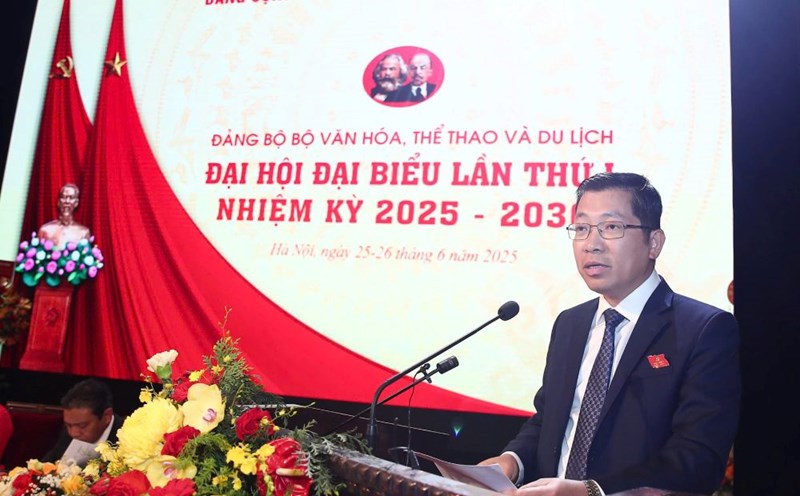On the morning of June 26, speaking with Lao Dong at the first meeting of the National Wage Council, Mr. Hoang Quang Phong - Vice President of the Vietnam Federation of Commerce and Industry (VCCI), Vice President of the National Wage Council said that the parties are still in the process of negotiating, expected to be completed before July 9.

Regarding the regional minimum wage increase in 2026, Mr. Phong said that it could range from 3 to 5%. "This level is moderate, to create room for businesses to adapt, have conditions to reward diligent workers, especially effectively implement Resolution 57 on increasing labor productivity and innovation" - he said.
Mr. Phong emphasized that the decision on the specific increase level needs to continue negotiation in the Council and there is currently no official document.
Mr. Nhac Phan Linh - Deputy Director of the Institute for Strategic Research and Magazine of Labor - Trade Union (VGCL) said that based on the current socio-economic situation, the country's development goals, as well as reports at the National Assembly forum, along with the results of regular investigations and surveys of the VGCL, the VGCL proposed two options to increase regional minimum wages next year, to ensure a minimum living standard for workers. The two options include: an increase of 9.2% and 8.3%.
According to Mr. Linh, the basis of this proposal does not only come from macroeconomic factors but is also associated with the major policies of the Party and State on improving living conditions and social security for workers. Vietnam is entering a new era, emphasized by the General Secretary starting from 2025, with the goal of becoming a developed country with high income by 2045.

"To achieve an average income per capita of about 15,000 USD by 2045, while currently only about 4,700 USD, the income of workers must increase by more than 400 USD per year, or about 12 million VND/person/year. Thus, salaries and incomes must be raised regularly each year to keep up with that target" - Mr. Linh analyzed.
He emphasized that this is a driving force, a basis for the National Wage Council to approach the issue of minimum wages in a new way, not only relying on technical factors, CPI, labor productivity index... but also needing to be viewed according to the national strategic development goal. Salary cannot be left out of the growth revolution.
Mr. Linh also compared that GDP last year reached 7.9%, this year set a minimum target of 8%, towards double-digit growth in the future. So salary and income must also have a corresponding breakthrough. If the minimum wage increase is lower than 8%, workers are not enjoying their fair share of growth results".
Regarding the time of application, Mr. Nhac Phan Linh proposed: "The increase from July 1, 2025 is reasonable. This is not only the expectation of workers, but also an annual practice. The COVID-19 pandemic has disrupted salary adjustments, but now it is time to create a revolution in wages and income".
He also noted that if the minimum wage increase in the enterprise sector is only around 5 - 6%, it will create a large gap compared to the upcoming increase in the civil servant and public employee sector, thereby causing a comparison psychology, affecting social psychology and general stability.










